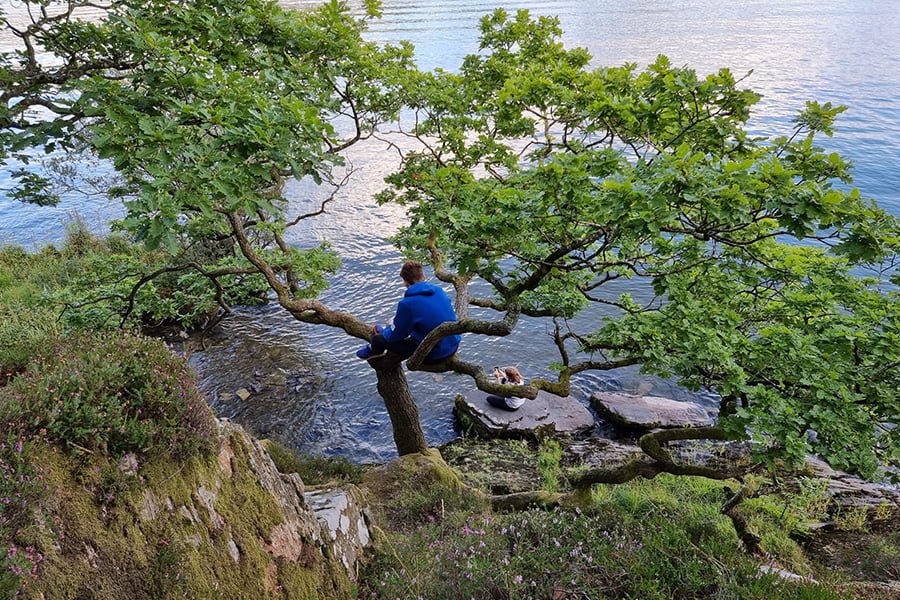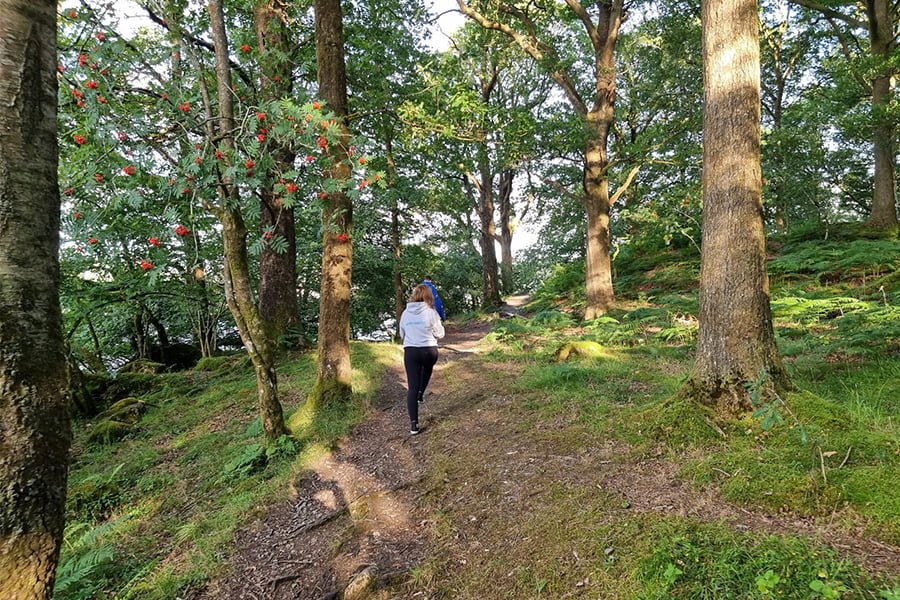
When I was younger, and I mean much younger, before I went to college and before the onerous worries of a ‘nearly adult’ kicked in, I would spend a lot of my time wandering the countryside with friends around the small Lancashire village where I was brought up.
Whatever the weather we’d be on our way after breakfast and hardly ever home until after sunset. We were lucky to have the countryside surrounding us, which included a couple of rather large woodlands; it’s remarkable to recall how much time we spent in those woods. I probably wasn’t aware of it at the time, but I think we felt safe in there. It became our private world where we built hides and adventure runs, had our own games and traditions, and generally escaped from the world. The woods provided comforting sounds and smells, the familiarity of space and the forever presence of old trees. Although we didn’t consider it at the time, we were in tune with the natural world around us. Being immersed in the woods for so much of my time meant that it was subliminally absorbed into my system. Although, as adulthood beckoned, the woods within me lay dormant, only to germinate about 10 years ago, when I joined the Arboriculture profession and trees began to re-emerge as a significant influence and interest in my life again.
Woodland is a ubiquitous element of our landscape, wherever you live; your local woodland may be a greater or lesser element in your own local landscape, much as it was greater in mine. What is amazing about our country is that we have so much variation among our woodlands within the confines of this relatively small island. Travel 30 or 40 miles in different directions and you will unsurprisingly find different types of woodlands, occurring on different soils, at different altitudes, or with a preponderance for one type of species over another. The beauty and benefits of woodland are intrinsically linked into our social psyche without us even realising.
Woodlands have been ever-present through the ages, linking communities, stories, jobs and economies. They are also an important part of developing new communities, helping to deliver a sense of place and enable a better quality of life through improved health and well-being opportunities. Leisure visits to woodlands are made for a variety of reasons from all people young to old, from quiet contemplation to noisy, adventurous activities. Many health and well-being benefits are provided by moderate but sustained physical exercise. Psychological well-being can be enhanced by walking and taking activity in a woodland setting and for many people there are also spiritual benefits.
My aim is to encourage people to improve their mental well-being by discovering for themselves what social benefits are freely available to them, by simply visiting our woodlands. You wouldn’t be surprised if I said people enjoy the social contact. Socialising within our green spaces, and particularly woodlands, is also a key factor in ensuring that people sustain their intrinsic connection with natural spaces over time, and do not ignore their existence. Providing a range of activities and events connected with woodland can encourage social interaction and participation. New developments can become community-focused, which would help to familiarise people with woodlands and encourage them to develop a sense of ownership of their local spaces. Given the benefits of woodland for health and well-being, the issue of access becomes very important. Local communities are at the heart of determining what is needed in a local area and there is an appetite for an increase in recreational opportunities and the greenspace to achieve them.

I hope I have inspired you to venture forth into woodlands, even if it just means taking a closer look at your own local woods: getting out there at different times of the year, at sunset, at sunrise, with your friends and family, or in solitude. You’ll be amazed how the same place, which you thought you knew so well, can take on so many different guises. Let’s use this detail, this knowledge, the social benefits that woodlands provide to encourage others and help make better spaces for people today.
Author
Robin Grimes
Principal Arboriculturist








